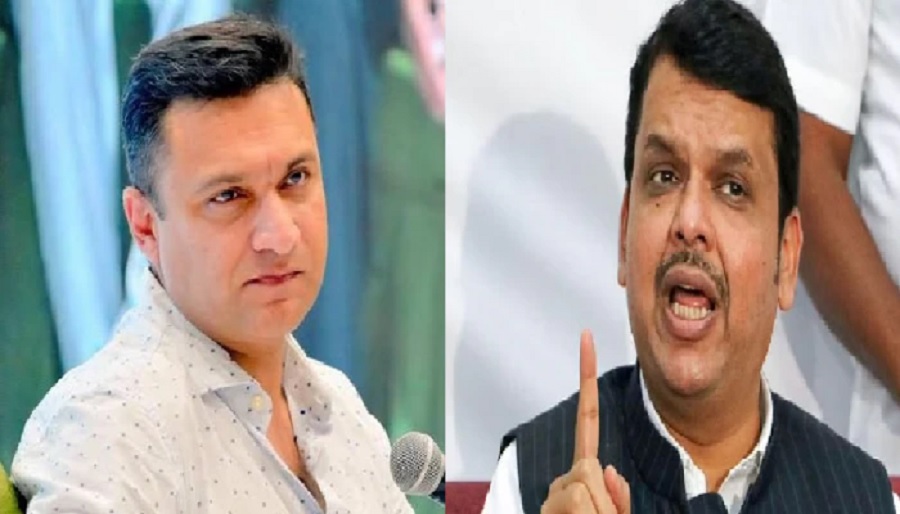
Temple-Mosque politics took an ugly turn this weekend with communally charged diatribe rising to the surface once again.
On Saturday, Asaduddin Owaisi, president of All India Majlis-e-Ittehadul Muslimeen (AIMIM), while an Eid Milap programme in Ahmedabad said, “I want to tell you and the regime that, we have lost one Babri Masjid, we will not lose another mosque. You (regime) have used trickery and fraud to murder justice and steal one mosque from us. We will not let you snatch another mosque from us.”
On what is purportedly the other side of the political divide, Bharatiya Janata Party (BJP) leader and former Maharashtra Chief Minister Devendra Fadnavis took to foul language to counter the AIMIM, especially Asaduddin’s brother Akbaruddin Owaisi’s visit last Thursday to Mughal Emperor Aurangzeb’s tomb. NDTV quoted him as saying, “Asaduddin Owaisi goes and pays tribute to Aurangzeb on his grave and you keep seeing that, you should feel ashamed of it. Listen to me Owaisi, even a dog will not pee on the identity of Aurangzeb. Saffron will rule in Hindustan.”
Context of Asaduddin Owaisi’s speech
In his speech at the Eid Milap program in Ahmedabad, Asaduddin Owaisi referred to the Places of Worship Act, according to which the character of a place of worship cannot be changed from what it was on Independence Day.
Owaisi referred to the Babri mosque that was razed in 1992 and Gyanvapi mosque where a video survey is underway. After three domes where namaz is offered were surveyed last week, the video survey at the Gyanvapi mosque located in Varanasi will resume on Monday.
After the Supreme Court judgment in the Ayodhya dispute case, there has been a resurgence in the demand of mosque lands to be restored to temples that were allegedly razed to build said mosques. The Gyanvapi mosque that was allegedly built from the debris of the Kashi-Vishwanath temple that was razed by Mughal Emperor Aurangzeb, and the Shahi Idgah mosque that is allegedly built on top of the dungeon in which Hindu deity Krishna was born in Mathura, are two such high profile mosques.
Readers would recall that last week a Varanasi court had refused to replace Advocate Commissioner Ajai Kumar and ordered that the survey be completed and a report be filed by May 17. The court had, however, appointed two more commissioners. This is in connection with a petition filed in August 2021 by five women, one of whom has since withdrawn her name from the case. They had moved the Civil Court (Senior Division), demanding that the Maa Shringar Gauri Temple be reopened, and people be allowed to offer prayers before the idols that are still kept there. The petitioners cited the right to practice one’s faith and religious freedom guaranteed by Article 25 of the Constitution. The court had ordered, “The survey will be conducted in Gyanvapi mosque and the entire barricaded area. Authorities will photograph and videograph the area. District authorities are ordered to open/break the lock of the basement and allow videography there as well.”
Meanwhile, after the appointment of Advocate Commissioners for the video survey at Gyanvapi mosque, two applications were moved before the court of the Civil Judge (Senior Division) in Mathura to appoint an Advocate Commissioner to carry out a similar survey at the Shahi Idgah. The Times of India reported that the petitioner has demanded this survey to confirm the “existence of Hindu artifacts and religious inscriptions in the mosque premises.” This case pertains to the Krishna Janmabhoomi movement, which has also been gathering steam over the last two years. This case has been adjourned to July 1.
Akbaruddin Owaisi’s controversial visit to Aurangzeb’s tomb
The other Owaisi brother had visited the Mughal Emperor’s tomb before addressing a rally in Aurangabad last Thursday.
It is noteworthy that Akbaruddin Owaisi had drawn flak from other parties as well with Nationalist Congress Party (NCP) chief Sharad Pawar dismissing the visit as another attempt “to create new controversy” in a state that is “functioning peacefully”. The Indian Express quoted Shiv Sena leader Chandrakant Khaire as saying, “No one, neither a Hindu or a Muslim, visits the tomb as Aurangzeb was the cruelest Mughal emperor. But Owaisi and his party leaders are trying to create a controversy for political benefit.”
Vote-bank politics or B-team?
The visit though could also be viewed as a political stunt, with the two brothers playing good-cop-bad-cop to appeal to different people in their target vote bank – Akbaruddin catering to hardliners and Asaduddin appealing to the moderates.
However, it cannot be denied that the actions of a high-profile community leader have only served to alienate the minority community further in an already communally charged atmosphere.
Maharashtra may have dodged a bullet in the Hanuman Chalisa-Azaan controversy and may not have seen conflict during Ram Navami and Hanuman Jayanti, yet it remains a coveted state for the BJP that hopes to oust the Maha Vikas Aghadi (MVA) coalition and reclaim control of the state. So, one has to ask, who benefits most from Owaisi’s visit to Aurangzeb’s tomb?
Related:
Gyanvapi case: Two more advocate commissioners added to Shringar Gauri survey team
Gyanvapi case: Court to pronounce order in Shringar Gauri temple survey matter today
Gyanvapi case: One out of five withdrawing name from Maa Shringar Gauri temple petition?
Gyanvapi case: Videographic survey of Maa Shringar Gauri temple begins
Gyanvapi case: Allahabad HC stays ASI survey, proceedings before lower court
Gyanvapi case: Varanasi court to hear petition to hold prayers in Shringar Gauri temple